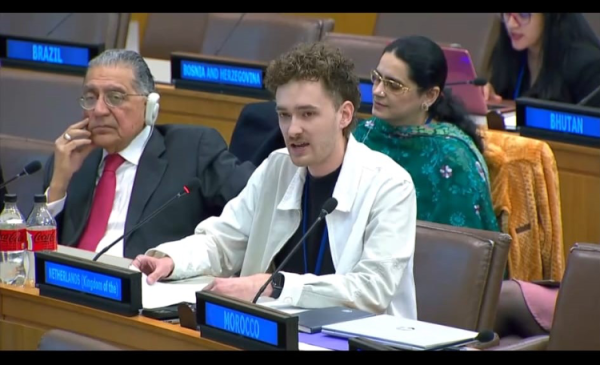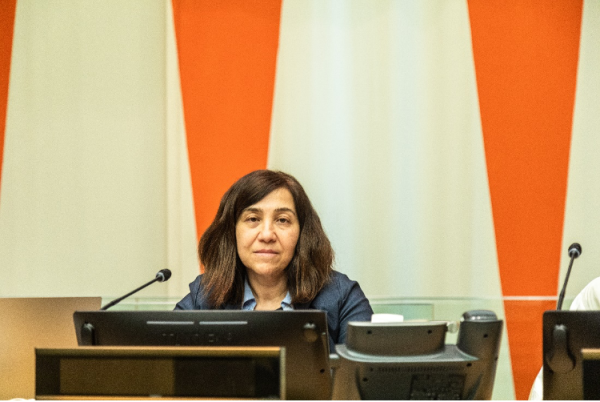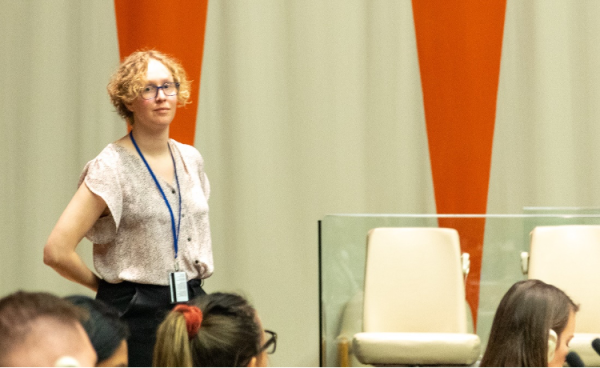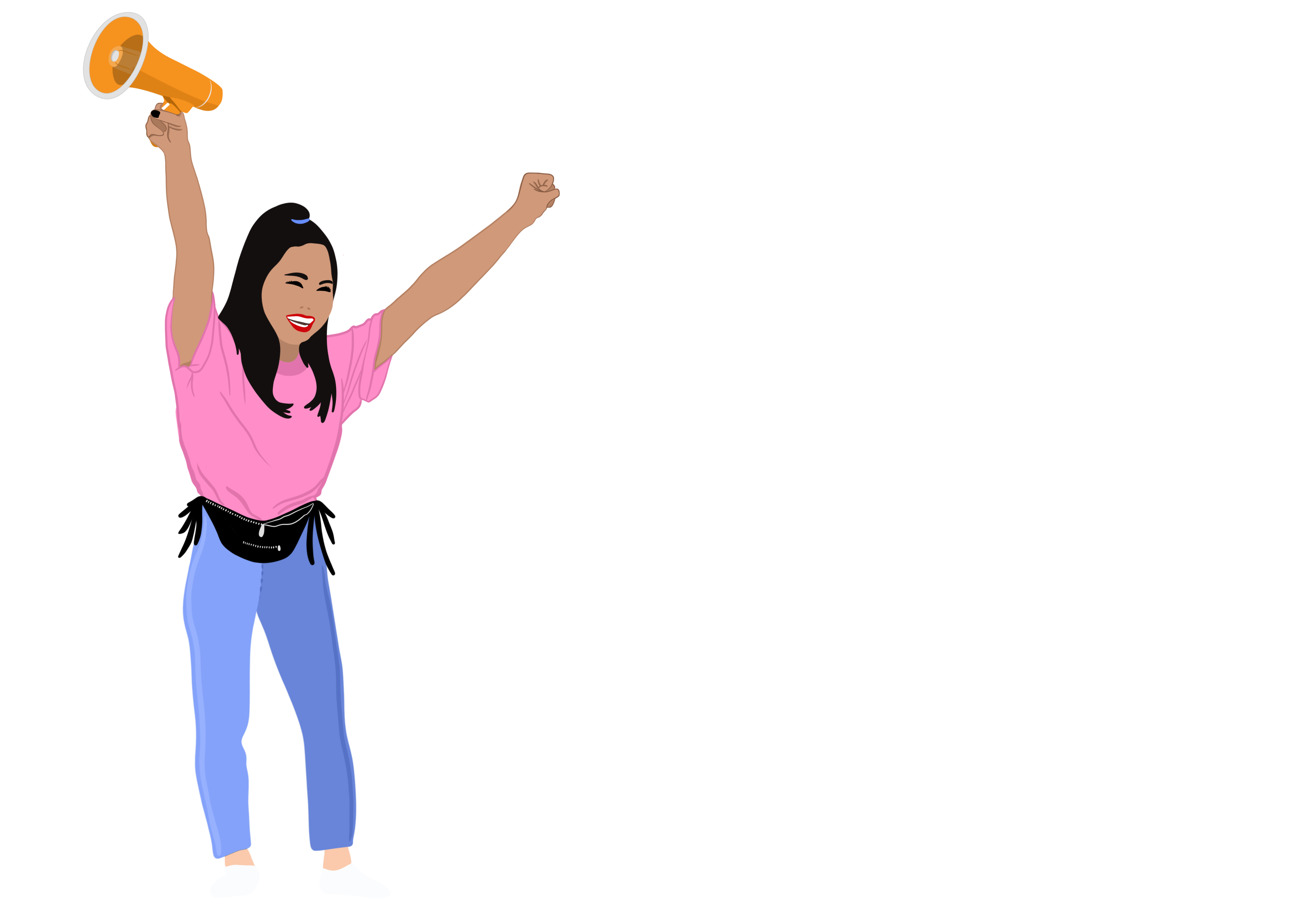CHOICE and Youth Ambassador SRHR at the UN: Polarization on Comprehensive Sexuality Education at the Commission on Population and Development.
In April, a group of youth and SRHR activists descended on New York, as CHOICE, together with our #RHRN partners from Morocco, Tunisia, Ethiopia and Kenya participated in the Commission on Population & Development at the United Nations. Our Advocacy Coordinator, Veerle, Program Coordinator, Daphne, and our Youth Ambassador on SRHR, gender equality and bodily autonomy, Jim, traveled to New York to advocate for meaningful youth participation & SRHR. As we are of course very interested to hear more about their experiences, we have asked two of them, Daphne and Jim, to share more about their experiences.
First experience as young people at a New York United Nations Commission
Daphne: “I had been seeing the United Nations and the work my fellow advocacy coordinators and our partners did there for some time with wonderous eyes. I was imagining what it would be like to speak to delegates and missions of states from all over the world and advocate for SRHR and meaningful youth participation. Unfortunately, the Commission on Population and Development, or CPD as I have become accustomed calling it, had a different experience in store for me. A big part of the negotiations had already taken place before we arrived. This meant that if you had well-established networks with governments, you were still able to influence the process. As many young people starting out at the UN might know, this is difficult to achieve if you have not yet participated in the previous CPDs. So, during my first days, I felt pretty lost, as the advocacy experience, I thought I would have, turned out pretty different."

Jim: “I was told that the first experience at a United Nations commission would be overwhelming. And it was. No matter how well prepared you are, you will run into unexpected changes and challenges. Fortunately, together with the Dutch delegation and mission, and Veerle and Daphne of the CHOICE advocacy team, we were able to overcome every obstacle during the commission and make our attendance to a success. Two moments during the CPD stuck with me. The first one was to see how polarized the CPD is. Delegations spoke about ‘Comprehensive sexuality education’ or a reference to sexuality education either fully in favor, or fully against it. This made it extremely difficult to come to terms on this topic. The second moment that stuck with me was addressing the commission. I shared a personal story about my brother, who lives with a disability, and I strived for the importance of inclusive comprehensive sexuality education for young people living with disabilities and meaningful youth participation. I was moved by all the reactions of other delegations, telling me how important it is to share these stories in global spaces like the UN, and that we should not forget the real faces that are affected by the resolutions that we are negotiating over.”
Successful side-event on inclusive CSE and youth living with disabilities

Daphne: “Despite the difficulties with advocacy, as program coordinator for the Youth Ambassador SRHR, Gender Equality and Bodily Autonomy program, I was very well positioned to focus on providing Jim with my support. This also meant that even though I was completely new to the space I thought it would be a good idea to host a side event. I learned very quickly that organizing such an event at the UN is different from doing so at any other conference. The UN is not an accessible or youth-friendly space, and it takes a long time to understand how to work with and in their facilities. If we would not have been supported by our Dutch delegation and mission in understanding and communicating with the United Nations, the event would not have turned into a success. However, we were, and it did! It was very powerful to see that we had been able to use the event to highlight the voices of youth and people with a disability to talk about their realities and be seen as experts. Still, I cannot help but wonder which voices are still not being heard due to resource restrictions, visa policies, accessibility or just not knowing the right organization with ECOSOC status.1”

Learnings for the future: building bridges on challenging topics
Jim: “An important learning for the future is to consider how bridges can be built to create new narratives. A good example of building bridges in this year’s CPD on CSE was during the closing ceremony: Papua New Guinea delivered a touching statement on how conservative values of a state and seeing the importance of CSE implementation are not mutually exclusive. It is crucial for further progress around CPD and the international commission on population and development (ICPD+30) to create a collective space and reach out to countries from various regions to share their stories and perspectives, and to find common ground on the importance of SRHR and CSE.”
Concluding thoughts on CPD56 and looking ahead to ICPD+30
Eventually the CPD concluded with the commission not being able to agree on their commitments on education, population and development. The final text proposed by the Chair of the Commission was a careful balance that tried to accommodate all states. However, a few member states could not accept a reference to sexuality education, even though this was agreed on during the commission in 2014. And so, there was no resolution. This will have far-reaching consequences for the implementation on the ground and for young people, adolescents, girls and marginalized groups worldwide. As activists, it shows how important it is to take care of yourself when these types of things happen. Unfortunately, not all battles are won in the war for better SRHR for young people, which can be truly disheartening. However, different states have shown their willingness and commitment to the commission and education during the week. We look forward to the discussions at national level on the anniversary of the ICPD+30 that will happen this year. These discussions will be important places to influence the process and we invite all youth activists to keep their eyes and ears open during the summer and in autumn for opportunities to speak at focus groups or national discussions.
1 ECOSOC status is a status an organization can be given by the UN. This status means that they are recognized as an expert and important contributor to the discussions at the UN. Only when a person can apply through the ECOSOC status of their own organization or are sponsored by an organization with ECOSOC status can they enter the UN building and speak during plenary discussions.




 Previous News article
Previous News article